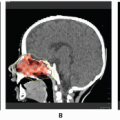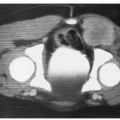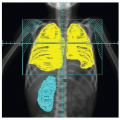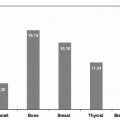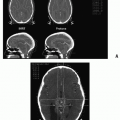Descriptive Characteristics of Study |
Findings Concerning IQ |
A Japanese sample of 30 children aged 3-16 at diagnosis (5) |
IQ level was almost 20 points lower than in healthy controls.
The decline increases with time since diagnosis even when there is no tumor recurrence or hydrocephalus |
A review of 18 studies (6) |
In 12 of the 18 studies, patients who got RT had IQ levels 12-14 points lower than those who did not get RT (see also Ref. 7) |
Children diagnosed with ALL who had been treated with RT were compared with two groups: ALL patients who had been treated only with chemotherapy and healthy controls (8) |
The group who got RT showed deficits in IQ that were at least partly independent of other cognitive impairments |
A comparison of children diagnosed with medulloblastoma who were treated with CRT and those treated only with surgery (9) |
The decline in IQ is more severe in those treated with CRT than in those who got only surgery |
Verbal intelligence quotient (VIQ) and performance intelligence quotient (PIQ) were assessed in 64 survivors diagnosed with ALL, about 20 years after diagnosis. 44 survivors got CRT, 20 only chemotherapy. The control group consisted of 45 healthy young adults. Earlier neuropsychological test results of 45 of the survivors were available (10) |
Mean VIQ test scores were 91, 100, and 109 (p < 0.001), and the mean PIQ test scores 100, 111, and 118 (p < 0.001) for the irradiated survivors, nonirradiated survivors, and controls, respectively. There was a significant decline in PIQ and VIQ test scores in the irradiated group during the follow-up period, but only in VIQ in the nonirradiated group |
Study dealt with trend in IQ as a function of time since diagnosis. Fifty children diagnosed with medulloblastoma completed 188 psychological evaluations using the Wechsler Intelligence Scales for Children over a 7-year study period following 35-40 Gy postoperative CRT (11) |
Decrease in IQ in children treated with CRT. There was a delay prior to decline in performance for older patients, whereas in younger patients the decline starts earlier (already in the first year), reaches a plateau at approximately 6 years postdiagnosis, and increases more as time from treatment increases. A steeper decline was found for those with higher baseline performance |
Children with malignant brain tumors who had been treated from 1986 to 1993 in Finland and were alive and tumor free 5 years later (12) |
The mean full scale IQ was 85 (range 45-138), 24% had an IQ value less than 70, and only 36% more than 90 |
64 patients with posterior fossa tumors, including those treated with either surgery and CRT (n = 32) or surgery without RT (n = 32). Ten patients treated for non-CNS solid tumors were included for comparison (13) |
Patients treated with CRT had lowered short-form IQ. Poorest performance was in those treated with CRT and who had postsurgical complications |
53 children treated according to the AML-BFM-87 protocol (median age at diagnosis: 8.5 years, range 0.3-17.5; median time since diagnosis: 5.7 years, 3.8-10.7 years), who got CNS prophylaxis that consisted of ARA-C intrathecal, high-dose ARA-C intravenous and either no CRT (n = 15) or CRT (n = 38) at a dose of 12-18 Gy depending on age. Patients with relapse or initial CNS involvement and transplanted patients were excluded (14) |
In the total group, no significant differences in IQ (assessed by Raven’s Matrices) were observed between irradiated and nonirradiated patients |
The study investigated if the IQ (assessed by the Hamburg Weschsler Intelligence Test for Adults) in 27 children treated for leukemia decreases in the years after whole brain RT. Mean time between RT and IQ measurement was 9 years (15) |
IQ results did not differ significantly from the IQs of the general population. Age and dose were not predictors of a decrease in IQ. The only predictor was time lapse between RT and IQ measurement, which was indicative of an IQ decrease even after 9 years |
16 children with brain tumor, treated with CRT or local RT, were compared with 15 nonirradiated children with ALL (16) |
On the Wechsler Intelligence Scale for Children—Revised Full Scale, the mean standard scores were significantly decreased in the brain tumor group |
A review of studies of children treated with CRT (17) |
CRT-treated children manifest significant drops in IQ scores especially when they are in the younger age groups |
31 patients (with medulloblastoma or ependymoma) treated with standard dose or reduced dose of RT (18) |
There was a 2- to 4-point decline per year in IQ. In the younger patients IQ declined quickly in the first few years after treatment, and then more gradually |
138 survivors (73 with ALL and 65 with solid tumors), diagnosed before the age of 15 years, with therapy duration over 2 years, had been evaluated at least 10 years after diagnosis (19) |
IQ scores of solid tumor survivors were higher than in leukemia survivors who had CRT at dosages ≥24 Gy (108 vs. 98; p = 0.03), and resembled those of leukemia survivors with CRT at lower dosages (102) or who got no CRT (109). Normal IQ correlated positively with age at diagnosis and negatively with CRT. Survivors of ALL who relapsed scored 14 points less than those who had not relapsed. Decline in IQ following RT persists over time |
Comparing the IQ of children with pediatric cancer diagnoses who got different doses of CRT (20,21) |
There was less decline in those who got reduced-dose CRT (23.4 Gy vs. 36 Gy) and were older (above 8.8 years) at the time of treatment |
Study of the effects of low doses of CRT in 22 children with varied diagnoses undergoing BMT. Fifteen got CRT (range 350-1200 cGy), and seven did not. IQ was tested before BMT and 1 year later in children 2.5 to 6 years with Stanford-Binet IV and those 6 years or older the Wechsler Intelligence Scale for Children-Revised (22) |
There were no decrements in IQ in the children who got CRT, regardless of the dose and the child’s age. There were also no significant differences compared to baseline in a subgroup who were followed up to 3 years. But there was great variability. There were decrements of 10 points or more in 7 children after 1 year |




